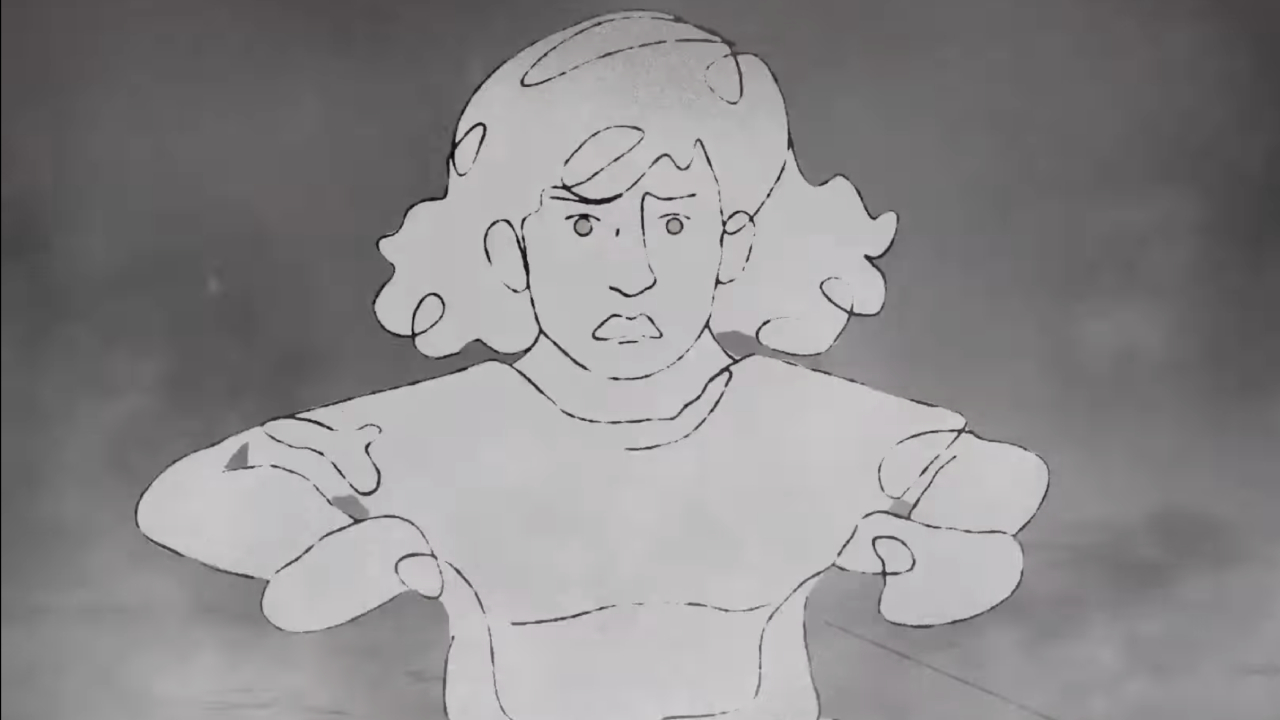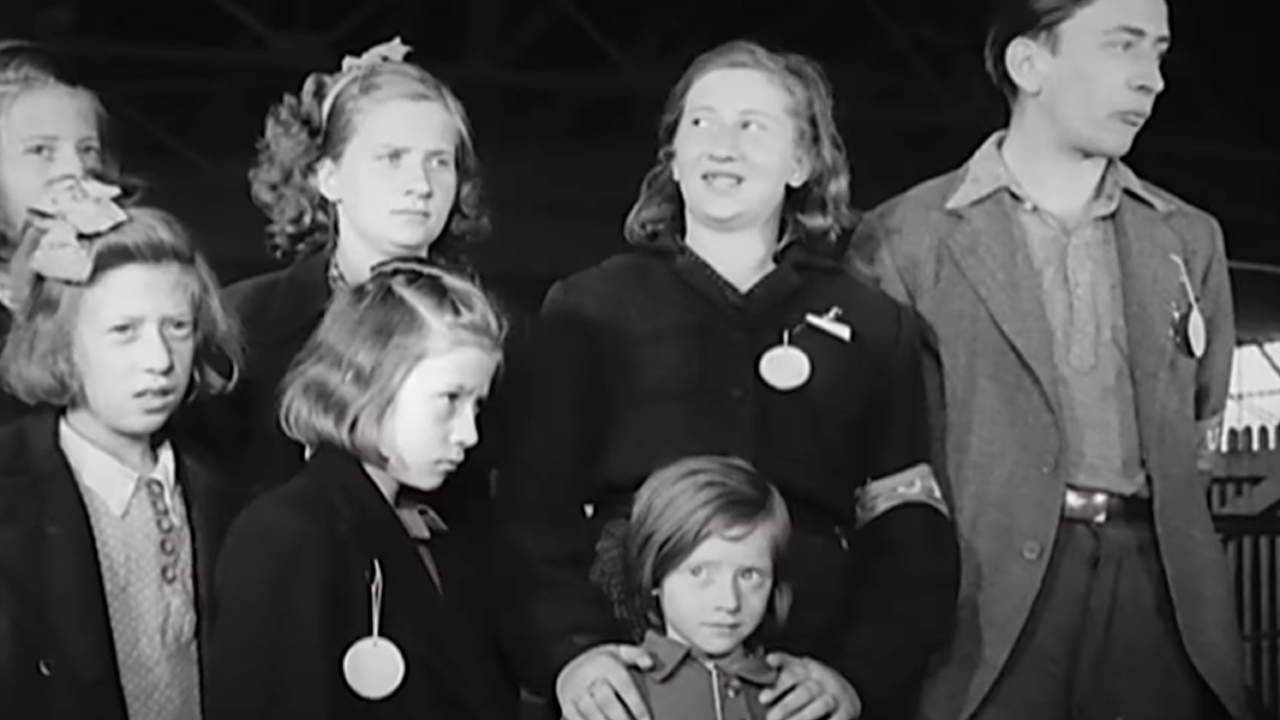I Just Saw The WWII Doc UnBroken, And I Have To Give It Props For Showing Me Bravery's Many Forms
People can be so amazing.

The Holocaust was a scary time not only for Jews, but also for the people protecting them. The best WWII movies like The Pianist, Schindler’s Life, and The Zookeeper’s Wife show people of that era displaying great acts of bravery protecting Jews, knowing it could cost them their lives if caught. In the WWII documentary, UnBroken (which is streaming on your Netflix subscription), we see the true story of how the Weber siblings survived the Holocaust together and the many forms of bravery that made it possible.
In UnBroken, we learn that Alexander and Lina Weber had seven children — Alfons, Senta, Ruth, Gertrude, Renee, Judith, and Bela. After Lina was arrested and murdered in a concentration camp, farmers Arthur and Paula Schmidt volunteered to take in the Weber siblings for Alexander. In the two years the children were hidden, their father made them promise to “always stay together,” which was kept throughout times of hunger, fear, and the danger of discovery. Here are five forms of bravery shown throughout the 2025 Netflix release that have truly impressed me:

Lina Weber Had The Courage To Shelter Jews
Lina Weber, daughter of a cantor, felt in her heart that it was the right thing to do to protect Jews under Nazi rule. She would obtain visas and passports for many Jews and hide them safely in her home. Despite her husband telling her to stop her acts of defiance in fear of being caught, Lina was persistent in her mission. Unfortunately, the Gestapo caught on to her activities. The youngest sibling, Bela, remembered when she was three years old, her mother hid her in a closet and ordered her to be quiet before she was taken away and ultimately murdered in Auschwitz.
It was a tragedy that Lina Weber did not survive and see her children grow up. But the matriarch of the family risked her life due to her moral beliefs and love for others. Her persistent protection of those who needed it, despite the life-threatening cost, is an act of bravery that we all wish we could embody under an authoritative threat. Her legacy clearly lived on in each of her children and the next generation of family that came after.

Lina Weber Challenged Nazi Authority To Free Her Husband
In 1933, Alexander Weber was arrested by the Nazis and spent nine months at the Oranienburg concentration camp in Berlin working in the laundry room. Ruth Weber speculated that the reason for his arrest was that he was a Catholic man who converted to Judaism and married a Jewish woman.
The documentary described a letter sent to the Weber house that both exonerated Alexander but still kept him imprisoned. Lina was described in Alons’ memoir, the oldest Weber sibling, as having “chutzpah” for marching herself down the courthouse with the letter in her hand and “used the Nazis’ own beauracracy against them” which secured his release.
The Nazis were a scary, terrifying force. Anyone who dared to defy them risked arrest, torture, or even death. With Lina likely aware of the risks that would come with trying to secure her husband’s release, she was truly admirable for standing up against prejudice and fighting for someone she loved. It shows that when you love someone fiercely, fear no longer stands in the way of doing what's right.
Your Daily Blend of Entertainment News

The Weber Siblings Survived The Holocaust Through Unity
Everything that the seven Weber siblings went through was as a family. As the only set of siblings who survived the Holocaust together, they endured harsh conditions while hiding in a laundry hut. Having to go through no cooking or running water for two years, as well as the fear of being taken to a camp, was a real hardship on them and an unimaginable situation no one should have to go through.
However, being together like their father told them to, and their love for each other, was the glue that held them together. Bravery came in the form of children not allowing the panic of WWII to drive them apart. If I were in a life-threatening situation myself, I would be able to get through it much easier knowing I was with loved ones through it all.

Arthur And Paula Schmidt Bravely Hid The Weber Siblings
After Lina was arrested for her underground activities, Alexander Weber entrusted the care of his children to Arthur and Paula Schmidt. Both running a produce farm in Worin, the couple hid the Weber siblings in their truck at night and transported them to their farm, where they hid in a laundry hut for two years. The Schmidts did everything they could for the children, making sure their basic needs were met. They even sought out help from the mayor of Worin, Rudi Fehrmann, who made ration cards for them so they could have food beyond what they could forage from the Schmidts’ farm.
Hiding Jews was considered a capital offense under Nazi rule that could have resulted in imprisonment, torture, or even execution. The kind of bravery the Schmidts exemplified takes a lot of selflessness to put yourself in that position. Even when the documentary’s director, Beth Lane, asked the youth hanging around the Webers’ old building if they would do what the Schmidts did, one girl struggled to answer. Knowing that saving lives means you could risk death is a courage that goes beyond words. Even in the most fearful times, there can still lie a hero in everyday people.

Documentarian Beth Lane Had The Courage To Uncover Her Family History
Bela, the youngest Weber sibling, showed her daughter, Beth Lane, the farm in Worin, Germany, that she and her siblings hid in during the Holocaust. After that, the documentarian refused to let her family’s story of survival slip away and felt it was important for the whole world to know about it. Through her uncle Alfons’ 40-page memoir, visiting her relatives’ hometown, and each sibling’s recollection of that time, UnBroken was born.
I give Lane a lot of props for having the courage to be able to talk to her aunts and mother about their painful past. It’s scary to ask someone to reopen old wounds, but she did it with care and the selfless purpose of making sure their stories were told. Lane was also brave for not being afraid to ask hard questions, not only to her relatives, but also to German citizens she visited, asking, “Would you hide me?” Not to mention, you could see throughout the documentary how hard it was for her to hear the devastating stories and see documents of arrest records. But, she still went forward with the documentary, knowing that this was a story that deserved a large audience.
UnBroken is one of the greatest documentaries that highlight Jewish-American history as well as real-life bravery we all wish we had. It's truly astounding what people are capable of doing for others, and it makes you wonder what type of courage lies in you that you didn't know you had.
By adding Beth Lane’s documentary to your streaming schedule, you’ll learn about the bravery of the Weber family, Arthur and Paula Schmidt, and the movie’s documentarian. Whether these real-life figures hid Jews away from the eyes of Nazis, stayed through hardships together, and dared to uncover the story decades later, UnBroken teaches us that heroism shines in many ways through the lives of ordinary people.

Just your average South Floridian cinephile who believes the pen is mightier than the sword.
You must confirm your public display name before commenting
Please logout and then login again, you will then be prompted to enter your display name.
